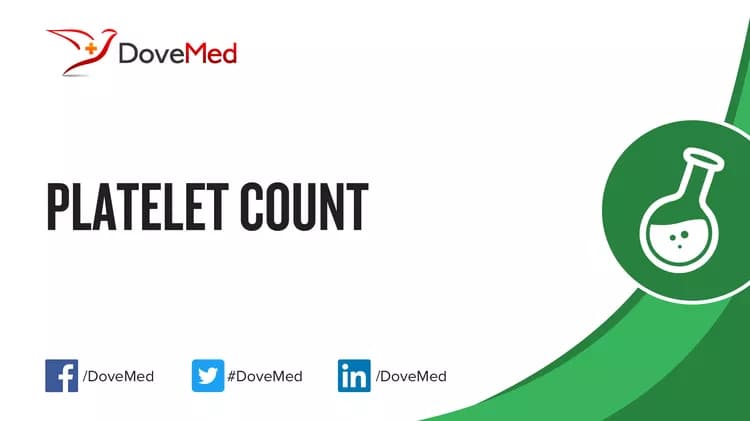What are the other Names for this Test? (Equivalent Terms)
- Platelet Count Test
- PLT
- Thrombocyte Count
What is Platelet Count Test? (Background Information)
- Platelets, or thrombocytes, are not actually cells, but cell fragments. They travel through the blood and form a clot, upon breakage of a blood vessel. This prevents excessive loss of blood
- Many of the body’s platelets (up to one-third of them), are in storage at any one time. The spleen and liver serve as storage facilities. Platelets are then steadily released, when needed by the body
- The process of clotting requires many platelets communicating through chemical signals. Thus, having the right number of platelets available to the body is essential, for the maintenance of this protective system.
- However, having too many platelets can be just as bad, as having too few platelets. In such a scenario, the platelets may clot prematurely and impede the flow of blood to tissues. This results in loss of blood supply to a tissue (ischemia). This may also obstruct oxygen supply to that tissue (hypoxia)
- The Platelet Count is a blood test that determines the abundance of circulating platelets. It can differentiate between “having too many platelets, too few, or just the right amount of platelets”
- The test may form part of the complete blood count (CBC) test - a test which gives vital information through numerical values of the key blood components
What are the Clinical Indications for performing the Platelet Count Test?
Following are the clinical indications for performing the Platelet Count Test:
- Excessive bleeding
- Easy bruising
- Skin discoloration (petechiae or purpura, depending on discoloration)
- Pathogenic infections, such as tuberculosis
- Living at extreme altitudes
- Blue coloration (cyanosis) of a tissue, due to oxygen deprivation (hypoxia)
- To monitor the effects of drug therapy and chemotherapy
- To monitor clotting ability, before or after surgery
How is the Specimen Collected for Platelet Count Test?
Sample required: Blood
Process: Insertion of a needle into an arm vein.
Preparation required: None
What is the Significance of the Platelet Count Test Result?
A high Platelet Count (thrombocytosis) may indicate:
- Iron deficiency (anemia)
- Living conditions are too cold
- Liver disease or cirrhosis
- Leukemia
- Pathogenic infections, such as tuberculosis
A low Platelet Count (thrombopenia) may indicate:
- Adverse antibody-antigen reactions, such as observed after a blood transfusion
- Lymphomas
- Disseminated intravascular coagulation (DIC)
- Bone marrow disease
- Hemolytic diseases, in the case of a newborn
- Burns, if present, are severe
The laboratory test results are NOT to be interpreted as results of a "stand-alone" test. The test results have to be interpreted after correlating with suitable clinical findings and additional supplemental tests/information. Your healthcare providers will explain the meaning of your tests results, based on the overall clinical scenario.
Additional and Relevant Useful Information:
- The Platelet Count Test should not be confused with the platelet function test
- Certain factors may interfere with the test and these include: Medications, such as aspirin, certain NSAIDs, etc.
Certain medications that you may be currently taking may influence the outcome of the test. Hence, it is important to inform your healthcare provider, the complete list of medications (including any herbal supplements) you are currently taking. This will help the healthcare provider interpret your test results more accurately and avoid unnecessary chances of a misdiagnosis.
Related Articles
Test Your Knowledge
Asked by users
Related Centers
Related Specialties
Related Physicians
Related Procedures
Related Resources
Join DoveHubs
and connect with fellow professionals


0 Comments
Please log in to post a comment.